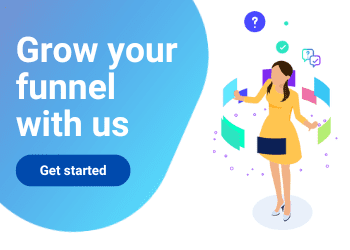A Labor of Love – Building the Reborn Brand
John: Hey everyone. Welcome to Life is Digital. I’m your host, John Bianchi. Get ready to learn about digital marketing as we share our knowledge and perspectives on current trends, best practices and actionable tips to help you grow your business in the digital age. Well, I am so excited this morning because I have a good friend, and I guess with me today, Emily Neville with Reborn Clothing Company. She’s the founder and CEO of a company that’s doing something really, really fascinating in the clothing and fashion space. So Emily, welcome. Welcome on board today.
Meet Emily Neville, Founder and CEO of Reborn Clothing Company
Emily: Thank you so much, John, great to be here today, and I’m excited to talk more about Reborn.
John: Absolutely. Well, in the pre-show, we were talking a little bit about this industry, and I wanted to have you maybe share some things that people don’t know about up cycling when it comes to clothing. Yeah, so at Reborn, we’ve really coined the term up-cycling as the new recycling. With recycling, you’re going to take clothing or fabric materials and really break it down and start from scratch, but with up-cycling, we’re actually preserving the original value of the garment while avoiding manufacturing processes that are harmful to the environment. It’s not really a new thing necessarily, right, probably your grandmother used to hem your jeans or patch things together, but where we are doing it in a really new innovative way is on a scalable level. So we’re taking thousands of pounds of text waste on a monthly basis and turning it into unique one-of-a-kind products that are partners and consumers everywhere love.
The birth of Reborn
John: That is really fascinating. So I guess I have to ask you, how or why did you start Reborn? What was that journey like? Did you want to say, you know, I see this as an opportunity. Was it a conversation with friends? How did you start Reborn?
Emily: Definitely wasn’t a clear path to get here, and a lot of things have changed since getting started as well, but I really was in love with this kind of concept of up-cycling, getting clothing out of the back of my closet and back to being used while growing up, and so I would make updates to an dress that I bought but didn’t like three weeks later, or college T-shirts that were sitting in my drawers and being unused around that same time, I was really interested in more sustainable eco-conscious apparel and products, but what I realized, especially as a college student, was that they’re really kind of on the fringe market. They were expensive, they weren’t in mainstream fashion, and so they felt very out of reach and hard to keep up with that lifestyle change. With Reborn what I wanted to do from the beginning is create a concept in a brand that could exist in mainstream fashion that had that comparative price point that was accessible and relatable to every person or individual out there, and we’re able to do that by using clothing or materials that do already exist. So we were able to take something that does have value, but where it’s out in the supply chain today, maybe it doesn’t, it’s really just waste in the wrong hands.
Biggest challenges you face in business
John: That’s so cool. I love what you’re saying about, you saw an opportunity, it’s something that you kind of always were interested in even making those updates to things that you currently own, but you then took that and you turn that into a successful business. What’s maybe one of the biggest challenges that you had to hurdle as you took this lifelong dream and it’s now become reality, but you obviously have learned some things a long way?
Emily: I’ve definitely learned a lot, and I would say it’s hard to choose from the number of challenges that I’ve come across it… Starting a business is not easy. I think the biggest change for me was realizing that there’s no end date, there’s no kind of deadline, or the day that you’re going to turn that final project in. Once you get started, you hope there never is an end-date. Right? And, so every day, I just have to build my brand and try to make it the best it can be a little by little growth day by day, there’s never a day that I don’t wake up excited to get to work and to grow my brand and so that has been consistent throughout the challenges, and I think it’s helped me get through things like difficulties with cash flow or onboarding new hires and making sure you’re finding those right people and putting them in the right seats, figuring out a supply chain, working with different vendors and suppliers to make it all come together. There’s a million things going on every day, but I think as long as you have that consistent passion and dedication, really growing your brand and the problem you’re trying to solve, you’ll be able to get through it.
Actions that will help build your company/brand
John: Well, I love that, and I think for a lot of our listeners… I’m sure in any role at any level of business… I love what you said. It’s just always ongoing, there’s always something new. There’s never going to be a day… I was having a conversation with a colleague last week. The to-do list is never going to be completed. There’s never a day where we’re going to close the computer and say, “Wow, we got every single thing done that we needed to do on that to-do list.” There’s always going to be something new. And that’s part of the excitement as well. That’s why we get into business, that’s why we love the people aspect and the brand aspect. I want to go back to something that you said about building your brand. What are some of the things that you do currently that maybe our listeners could engage in to help build their brand and build their companies?
Emily: Yeah, again, building a brand is something that we’re focused on every day to really to grow awareness, to make reborn a household name is ultimately the goal. Now, that can be very expensive. And so I would say, especially to people listening to this podcast, so there’s a lot of gorilla marketing efforts you can do by getting started – word of mouth, developing excellent content that no matter where it shows up that represents your brand and your brand name well. One thing that we’ve done really well, especially in the university market, is to grow a brand ambassador program. These are students on campus where even though I’m not in Iowa or in California, they’re there, they’re on campus, although maybe virtually right now, and so they’re able to showcase those products through social media, to tell their friends and family about it and really grow it organically. We really started now tapping into more of that paid advertising side of things. I would say if you’re getting started… Don’t worry about that so much. Just worry about creating really excellent content and trying to grow organically.
How important is storytelling in business?
John: I love what you’re saying there about investing in the long-term, building your brand ambassadors. How important is story telling from a business perspective?
Emily: I personally, for our brand, we’re telling a story through up cycle and clothing and fabric waste, and that has to come through at every point of our process, because it’s an incredible story. I realize talking to people every day that a lot of people don’t even know that it’s still people making your clothing or your products, so that’s an important part of the story as well, but even just trying to think through how is a t-shirt becoming a laptop sleeve or this scrap of fabric becoming a scrunchy? It’s something that we need to do a really good job of telling a story digitally so that people can start to piece that process together.
John: That… No, I love that, because I think that story-telling aspect when we work with our clients, and a lot of the conversations that I’ve had on here, and I had a previous conversation earlier today, that businesses in the digital transformation are having to focus on being… I guess we were banding around was transparency. People want to know the why and the how behind the brand. It’s no longer just about the products, the benefits, the features. They want to know the people behind it, like you said, the brand ambassador is so important for telling the Reborn story. And I love what you’re saying there, because that’s a real investment in your long-term aspect to be able to develop that content along the way.
Emily: Yeah, no, I couldn’t agree with you more. It’s definitely a lot of work. I can continually develop content but any way that you can find to really tell that story, so simply starting out and it’s going to show through and really maximize that long-term impact.
Content that drives business growth
John: What types of content would you recommend that companies start investing in? Do you see value in producing video, producing social posts? You talked a little bit about the gorilla marketing. Obviously, in your industry, you have to have product shots and that’s gotta be part of that storytelling. What type of content would you recommend to businesses and business owners for them to get involved with?
Emily: Yeah, I think product shots are really important, especially from an e-commerce perspective, just so you can really show off all of the features of that product, but definitely… And especially as we’re talking about brand ambassadors, lifestyle shots are also equally important, if not more so, because you’re seeing that product in its actual element. You’re not just seeing a duffel bag on a website, you’re seeing that your friend, or hopefully it looks like your friend in the image, is carrying the duffel bag around and so you want that duffel bag too. I think that if you can really showcase that this product or your service is applicable and relevant to the market and to those consumers, they’ll buy in, and so as far as content creation, I would say, especially if you’re getting started and you’re not maybe working with a professional photographer or able to create video, although it’s really important, you can take a video with your iPhone. You can have brand ambassadors and in photos of them using the products, and so you can develop a very organic, really genuine, feeling, social digital presence through, again, iPhone photos.
Learning lessons when starting a business
John: Sure, sure, for sure. What’s one thing that you’ve learned that has really opened your eyes about business from the time that you started? What’s something you learned along the way as you’ve started your company?
Emily: It’s been nearly three years now since I officially started, although every day it feels like the new day, and I know we touched on that a little bit earlier, just with the number of challenges you’re going to go through, the fact that the work never ends, and so making sure that you’re excited about what you’re doing every day I think is important. How I’ve been able to do that and how I’ve been able to get through it is by surrounding myself of talented people. I always say as a CEO, I should be the least talented person in the room, and if I can know that I have people who are doing a really great job at their role, I start to get to take myself more out and focus on that big picture strategy really checking in on a daily or weekly basis to see, are we meeting our goals? Are you turning into the brand that I really see us… For our five-year, 10-year plan down the road? But, I’ve only been able to do that by, again, finding those right people and not being afraid to hire someone who hopefully is better at me at e-commerce or at social or at sales or whatever that is to find people.
John: No, that makes absolute sense, and I think that goes back to that idea of the unit and the team being better together with the various skills that you have, I think something we focus on here at BOS, and I’m sure you do the same is the specialization in different roles is the only way that we can be successful together. Obviously as the CEO, you’ve got that high level view, you’ve got the vision, but it’s hard to execute every single task, and as things grow, you have to be able to delegate those things to people that, like you said, potentially are the better executor… I know that from the things that I work on every day. The creatives are… It’s not me, I’m not going to be able to do it. So we’re going to have people who know how to be creative and good at branding and video and storytelling to take on those things.
Emily: You focusing on this part of the job and less on creative, you’re opening up them to be better at their jobs, and that’s where it all has to work together. And I will say too, definitely as the founder, I love telling a story. Right, I know that I would probably tell that better than anyone else today, but you do have to start to take yourself out of it if you ever want your brand to grow past you as a single unit. And so I’d say, don’t be afraid to take that time to onboard new hires, to let them take the reins more… right? And to delegate, even if it feels scary or difficult to let go more, it will pay off in the long run. So I spend a lot of time working with our new hires and working with new team members to make sure they do feel comfortable and confident in what I maybe used to do, but I’ve just seen it grow our brand quickly, which is exciting. Very, very fast growth, I think through bringing the right people on…
Key Takeaways
John: That’s awesome. And I love what you’re saying there about getting past that fear because that’s what holds us back once we can hurdle that, that’s where we really begin to see that break through in the ceiling that really the only limiter is ourselves, and once we move past that, that’s when we see that exponential growth. Well, Emily, this has been a really, really awesome conversation today, I wonder if you could leave the audience with a few key takeaways from what we’ve talked about, branding content, making sure you hire the right people, get them in the right seats, what’s a couple of key takeaways you can leave the audience with today.
Emily: Absolutely, John, hopefully what really shown through this conversation is the need to build your brand, whether that’s through organic engagement, starting off, and then of course, increasing that digital presence and in more content creation as you grow, bringing the right people on and not being afraid to really delegate and letting them do their jobs well, and then I think just realizing and being okay with the fact that, especially with the start-up or getting it off the ground, there’s going to be instability, there’s going to be challenges and failures and being okay with that. I think maybe we’ve won more of more failures and challenges than the easier sales or things that have happened, not that I would really say any of them have been that easy, but you’re going to learn through it, and it’ll feel really difficult and maybe even isolating at times, but I really do try to take time throughout every month and look at how far we’ve come even in that past month or in that past quarter or in that year, and it’s mind-blowing to say, “Wow, we have come so far, I can only imagine what the next year will bring… ” And, have that positive outlook.
John: That is the way to look at it, that what you’re building and the investment you’re making today is in that future growth, so those things you’re talking about, those will be the things, the blocks that you’ll actually be standing on, or like you said, you’ll get down the road next year, and you’d be like, “Wow, I can’t even believe that as much as I thought I was ahead of where I was last year… Now, I’m so much farther ahead.” Well, Emily, this has been a fantastic conversation. Thank you so much for your agreeing to take the time with me this morning, and I really wish you the best. I love the story of Reborn. I think what you’re doing is really making an impact in an industry, and I’m really excited to see where you guys are going to be very, very soon.
Emily: Thank you, John, I really appreciate it.
John: Well, I appreciate you, the audience as well. For joining us for this episode of Life is Digital. I am your host, once again, John Bianchi, please remember to rate, review and subscribe to the show. There’s some links in the comments section below. Until next time. Don’t stop marketing.











